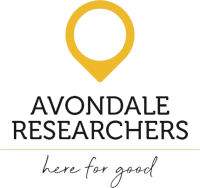
Research
Research at Avondale University is designed to align closely with both our purpose – to transform lives through Christ-centred higher education – and our motto – for a greater vision of world needs.
Avondale’s strategy is to model its three specialist areas (BFoEs) of research around the three main areas of Seventh-day Adventist Church mission – teaching, preaching and healing – and our vision of what the world needs, identifying with United Nations Sustainable Development Goals where appropriate.

Annual Research Report 2022
Research Repository
Christian Education Research Centre
CERC researches the theories and practice of Christian Education and seeks to promote this research at Avondale and by partnering with other institutions such as Christian schools, tertiary institutions and their administering entities. Transformative projects and collaborations in the education sector can be discovered at Avondale Research and TEACH Journal of Christian Education. See the for a detailed performance report for CERC.

Lifestyle Medicine and Health Research Centre
LHMRC brings together academics from the various schools at Avondale University, as well as collaborating researchers from other Australian and International institutions. Together, these researchers investigate the role of positive lifestyle in the promotion of health and wellbeing. LMHRC aims to produce world-leading research in the area of health and lifestyle medicine. See the for a detailed performance report for LMHRC.

Scripture, Spirituality and Society Research Centre
SSSRC provides an environment for interdisciplinary and inter-institutional research relating to matters of Scripture, Spirituality and Society. It seeks out research that that has practical application and meets identified needs in the Christian Church and the wider community. The centre acts as a forum for academic discussion relating to the nexus between Scripture, and Spirituality. SSSRC also values and supports research in the Arts. See the for a detailed performance report for SSSRC.


World standard research in 50% of BFoE in which courses are delivered
Avondale’s Research Plan outlines a focused approach to research that is strategically aligned with the central mission and three Broad Fields of Education (BFoEs) – Health, Education and Society & Culture. This targeted strategy is designed to maximise research quality, productivity and impact across the institution and beyond. It informs all aspects of Avondale’s research endeavours, including:
- strategic and operational research funding for individuals, teams and research centres
- academic workload allocation and performance expectations
- doctoral degree candidate selection
- industry collaborations
- external grant funding priorities
Research outcomes against the Australian University standard
Avondale meets the criteria for this standard in three core BFoEs in the following ways:
- research is undertaken in three of the six BFoEs in which Avondale offers courses;
- a total of 563 (unweighted) HERDC publications across the three core BFoEs produced in the period 2015-2020;
- more than 50 world standard or above (ERA rating 3-5) publications (unweighted) in each of the three core BFoEs in the period 2015-2020
- 36% of research outputs are conservatively categorised as world standard or above (ERA rating 3-5), including two publications in The Lancet journal; benchmarking and peer review continue to verify these internal assessments
- internal and external competitive research grants won in each of the three core BFoEs;
- peer reviewed national and international publication awards such as ‘best paper in a journal’ or ‘best paper at a conference’ won by Avondale researchers
- evidence of research impact demonstrable and sustained in each of the three core BFoEs, informing Avondale’s civic leadership and industry engagement strategies
Quality & number of publications & citations
The table below enumerates the unweighted peer reviewed publications categorised as world standard or above (ERA 3-5). A total of 205 publications meet sector-recognised best practice indicators, 90% of which are published in Q1 or Q2 rated journals.
World Standard Publication Types by Core BFoE 2015-2020
| Core BfoE | Publication Types* | |||
|---|---|---|---|---|
| Total** | Books (A1) | Book Chapters (B1) | Journal Articles (C1) | |
| 06 Health | 88 | 0 | 1 | 87 |
| 07 Education | 54 | 0 | 15 | 39 |
| 09 Society & Culture | 63 | 15 | 22 | 26 |
| Total | 205 | 15 | 38 | 152 |
The top 10 researchers at Avondale have an average of 1392 citations ranging from 332 to 7165, and a total number of downloads ranging from 3819 to 82798. In most cases the smaller citation and download figures are from research fields that are more niche or localised and attract specialised audiences.
Avondale can provide validated evidence of maturity in producing world standard research across three core BFoEs. In 2018 Emeritus Professor Mark Tennant (UTS) confirmed that, for the four years of the reference period for ERA 2018, the reportable publications under HERDC categories were: Society and Culture (n=182); Education (n=85); and Health (n=78).
Validation of Avondale’s benchmarked research performance was provided by experts Professor Judy Raper and Emeritus Professor Raymond Nobbs in TEQSA’s Assessment Report (2019). Professor Nobbs commented: ‘On a wider scale, with the exception of two large research-intensive universities, the quantity of Avondale’s research is comparable to the volume produced by Australian universities and the quality is above average.’
Research Repository
A repository for research and scholarly output produced by Avondale staff and postgraduate students, Research Repository contributes to the growing trend for open access to scholarly outputs, making all of Avondale’s research literature freely available online.
Academic Quality
Avondale’s Research and Research Training is underpinned by its Quality Management System.Learn more



